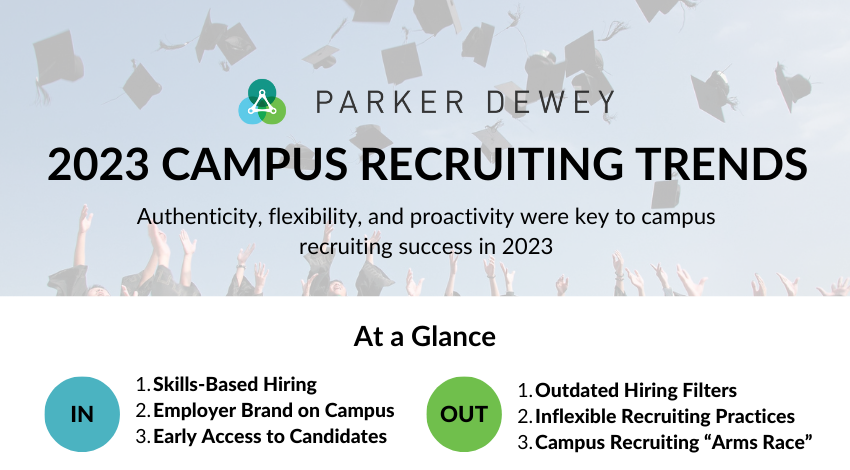
Skills-Based Hiring: Why GPA Filters Are Making a Comeback—and What Employers Should Do Next
A recent report from the National Association of Colleges and Employers (NACE) revealed a surprising trend: more companies are returning to GPA as a filter for entry-level candidates. After several years of decline, the percentage of employers using GPA as a screening tool has risen from 37% in 2023 to 46% in 2024.
This increase comes despite widespread recognition that GPA is a poor predictor of job performance. For many organizations, the rise in applicant volumes has led to a reliance on familiar—though flawed—methods for screening candidates.
At the same time, the NACE report highlights the growing adoption of skills-based hiring. Nearly two-thirds of employers now incorporate skills-based practices, but most are applying these methods at the interview stage. The opportunity to make the biggest impact, however, lies earlier in the process, at the top of the hiring funnel.
Why Timing Matters in Skills-Based Hiring
According to NACE, 90% of employers using skills-based hiring focus on it during interviews—after significant time and resources have already been invested. By this point, organizations may have already screened out highly capable candidates due to traditional filters like GPA or educational background.
Implementing skills-based practices earlier in the hiring process offers several key advantages.
When companies assess skills earlier in the process, they can:
- Identify strong candidates sooner and avoid wasting time on those who lack key competencies.
- Broaden access to diverse talent by bypassing traditional filters like GPA that may exclude qualified candidates.
- Reduce time-to-hire by focusing on meaningful, skills-driven metrics rather than outdated proxies.
How Employers Are Incorporating Skills-Based Hiring
NACE’s data sheds light on how organizations are operationalizing skills-based hiring. Common methods include:
- Developing competency-based job descriptions to clarify expectations.
- Using skills-focused interview rubrics to standardize evaluations.
- Incorporating assessment tools—both internally and externally developed—to evaluate candidates’ abilities effectively.
These practices provide actionable insights into candidates’ abilities, enabling better decision-making throughout the hiring process.
Overcoming Barriers to Skills-Based Hiring
Despite the benefits, implementing skills-based hiring isn’t without challenges. The most common roadblocks include:
- Resource constraints: 53% of employers cite limited time and departmental resources as a barrier.
- Cultural resistance: Half of employers report a lack of buy-in from hiring managers, while 45% point to broader organizational resistance to change.
Overcoming these challenges requires investment in tools and training, as well as fostering a culture that values skills over traditional credentials like GPA or educational pedigree.
What Colleges and Career Services Can Do
For skills-based hiring to succeed, colleges and universities play a critical role in preparing students. Institutions should focus on:
- Integrating career readiness competencies into the curriculum.
- Providing experiential learning opportunities such as internships, co-ops, and project-based work.
- Offering resources to help students articulate and demonstrate their skills through resumes, portfolios, and interviews.
These efforts ensure that students are ready to thrive in a hiring environment increasingly focused on skills and competencies.
Looking Ahead: The Future of Skills-Based Hiring
The resurgence of GPA as a filter highlights an opportunity for organizations to rethink their approach. By incorporating skills-based practices earlier in the process, employers can reduce bias, streamline hiring, and uncover high-potential candidates who might otherwise be overlooked.
As skills-based hiring continues to gain momentum, those who adopt it proactively will be better positioned to compete in a crowded and rapidly evolving talent market.
Ready to explore how skills-based hiring can transform your recruiting strategy? Stay ahead by aligning your process with today’s best practices for identifying, evaluating, and engaging early-career talent. Schedule an intro meeting with the Parker Dewey team here.




